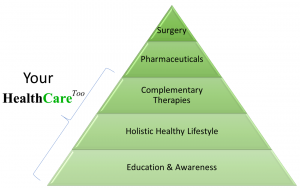Longitudinal Effect

You’re probably mindful of side effects ― stomach pains, headaches, lethargy ― that pop up in the first days or weeks after beginning a new medication. However, you might not realize drugs can actually cause new side effects months or years after starting a regimen, even if your body initially tolerated the medication quite well.
Whether you suddenly develop issues from an antibiotic you’ve been on and off for years, or an unconscious lifestyle factor is influencing your existing drug regimen, here’s what you need to know about your changing tolerance to medication.
There are a number of factors that impact whether you’ll develop new side effects, including ebbs and flows in your body’s basic biology, explained Albert Ahn, an internal medicine physician at NYU Langone Health.
“The way you metabolize a medication can simply change over time,” he said. “For instance, you could tolerate amoxicillin well for years, and then suddenly develop bad stomach issues while taking it later on.”
According to Jen Wolfe, a senior care pharmacist in the Washington, D.C., area, this particular shift can be chalked up to age.
“Your metabolism decreases over time, meaning your body doesn’t get rid of it as fast, leaving higher concentrations of drug in the bloodstream,” Wolfe said, which increases the likelihood of developing side effects.
Wolfe added that any change in your liver or kidney function ― for instance, a condition like diabetes can decrease kidney function ― will cause drugs to be metabolized slower, increasing the side-effect risk.
Lifestyle or physical changes can also affect the odds of developing side effects. Wolfe said a change in body fat may increase the likelihood of a medication reaction down the road. “Some drugs are lipid-soluble and may concentrate in fatty tissues, such as some anti-anxiety meds, meaning you need a lower dose to avoid side effects,” she said.
For more information please see the original article: Surprise! Your Medication Can Have New Side Effects Years After You Start It | HuffPost
Our Model




